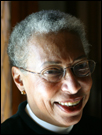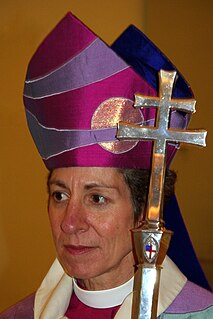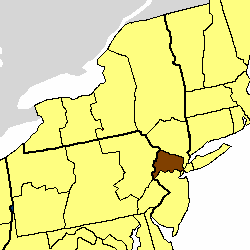Related Research Articles

In certain Christian denominations, holy orders are the ordained ministries of bishop, priest (presbyter), and deacon, and the sacrament or rite by which candidates are ordained to those orders. Churches recognizing these orders include the Catholic Church, the Eastern Orthodox, Oriental Orthodox, Anglican, Assyrian, Old Catholic, Independent Catholic and some Lutheran churches. Except for Lutherans and some Anglicans, these churches regard ordination as a sacrament.

Ordination is the process by which individuals are consecrated, that is, set apart and elevated from the laity class to the clergy, who are thus then authorized to perform various religious rites and ceremonies. The process and ceremonies of ordination vary by religion and denomination. One who is in preparation for, or who is undergoing the process of ordination is sometimes called an ordinand. The liturgy used at an ordination is sometimes referred to as an ordination.

The ordination of women to ministerial or priestly office is an increasingly common practice among some contemporary major religious groups. It remains a controversial issue in certain Christian traditions and most denominations in which "ordination" was often a traditionally male dominated profession.

Barbara Clementine Harris was an American bishop of the Episcopal Church in the United States. She was the first woman consecrated a bishop in the Anglican Communion. She was elected suffragan bishop of the Episcopal Diocese of Massachusetts, on September 24, 1988, and was consecrated on February 11, 1989. Eight thousand people attended the service, which was held at the Hynes Convention Center in Boston, Massachusetts. She served in the role of suffragan bishop for 13 years, retiring in 2003.

Katharine Jefferts Schori is the former Presiding Bishop and Primate of the Episcopal Church of the United States. Previously elected as the 9th Bishop of the Episcopal Diocese of Nevada, she was the first woman elected as a primate in the Anglican Communion. Jefferts Schori was elected at the 75th General Convention on June 18, 2006, and invested at Washington National Cathedral on November 4, 2006, and continued until November 1, 2015, when Michael Bruce Curry was invested in the position. She took part in her first General Convention of the Episcopal Church as Presiding Bishop of The Episcopal Church in July 2009.

The Episcopal Diocese of Newark is a diocese of the Episcopal Church in the United States of America comprising the northern third of New Jersey in the United States. The Diocese represents the Anglican Communion, of which the Episcopal Church is a province, and presides over Episcopal parishes, missions, outreach ministries and schools in the New Jersey counties of Bergen, Essex, Hudson, Morris, Passaic, Sussex, Warren, and one church in Union County.

The history of the Episcopal Church in the United States of America has its origins in the Church of England, a church which stresses its continuity with the ancient Western church and claims to maintain apostolic succession. Its close links to the Crown led to its reorganization on an independent basis in the 1780s. In the nineteenth and early twentieth centuries, it was characterized sociologically by a disproportionately large number of high status Americans as well as English immigrants; for example, more than a quarter of all presidents of the United States have been Episcopalians. Although it was not among the leading participants of the abolitionist movement in the early 19th century, by the early 20th century its social engagement had increased to the point that it was an important participant in the Social Gospel movement, though it never provided much support for the Prohibitionist movement. Like other mainline churches in the United States, its membership decreased from the 1960s. This was also a period in which the church took a more open attitude on the role of women and toward homosexuality, while engaging in liturgical revision parallel to that of the Roman Catholic Church in the post Vatican II era.
Alison Mary Cheek was an Australian-born American religious leader. She was one of the first women ordained in the Episcopal Church in the United States and the first woman to publicly celebrate the Eucharist in that denomination.
Ellen Marie Barrett is an American priest of the Episcopal Church. She was the first open lesbian to be ordained to the priesthood following the Episcopal Church's General Convention approval of the ordination of women in 1977. Barrett's candor about her homosexuality caused great controversy within the church. Even prior to her ordination, she was a prominent spokesperson for the rights of gays and lesbians in the church, especially regarding their ordination.

The Episcopal Church, based in the United States with additional dioceses elsewhere, is a member church of the worldwide Anglican Communion. It is a mainline Protestant denomination and is divided into nine provinces. The presiding bishop of the Episcopal Church is Michael Bruce Curry, the first African-American bishop to serve in that position.

The ordination of lesbian, gay, bisexual and/or transgender (LGBT) clergy who are open about their sexuality or gender identity; are sexually active if lesbian, gay, or bisexual; or are in committed same-sex relationships is a debated practice within some contemporary Christian denominations.

The ordination of women in the Anglican Communion has been increasingly common in certain provinces since the 1970s. Several provinces, however, and certain dioceses within otherwise ordaining provinces, continue to ordain only men. Disputes over the ordination of women have contributed to the establishment and growth of progressive tendencies, such as the Anglican realignment and Continuing Anglican movements.

Ordination is the process by which individuals are consecrated, that is, set apart as clergy to perform various religious rites and ceremonies such as celebrating the sacraments. The process and ceremonies of ordination varies by denomination. One who is in preparation for, or who is undergoing the process of ordination is sometimes called an ordinand. The liturgy used at an ordination is sometimes referred to as an ordinal.
The Movement for the Ordination of Women (MOW) was the name used by organisations in England and Australia that campaigned for the ordination of women as deacons, priests and bishops in the Anglican Communion.
The Philadelphia Eleven are eleven women who were the first women ordained as priests in the Episcopal Church on July 29, 1974, two years before General Convention affirmed and explicitly authorized the ordination of women to the priesthood.
Betty Bone Schiess was an American Episcopal priest. She was one of the first female Episcopal priests in the United States, and a member of the Philadelphia Eleven: leaders of the movement to allow the ordination of women in the American Episcopal Church.
Claude Charles Vaché was an American prelate of The Episcopal Church, who served as the seventh Bishop of Southern Virginia.
This is a timeline of women in religion. See also: Timeline of women in religion in the United States.
This is a timeline of notable moments in the history of women's ordination in the world's religious traditions. It is not an exhaustive list of all historic or contemporary ordinations of women. The list includes cisgender and transgender women.
Nan Arrington Peete is an American Episcopal priest. She was ordained in 1984 and, among other postings, she was the rector at All Saints' Church in Indianapolis and a staff member of Trinity Church in New York City. In 1988, she was invited by the Archbishop of Canterbury, Robert Runcie, to speak at the Lambeth Conference, a gathering of Anglican bishops that usually occurs every 10 years. She was the first ordained woman to ever address the conference and her speech is credited by some as having helped increase support of the ordination of women in the Anglican Communion.
References
- ↑ "Today in women's history: Church of England ordains women priests". People's World. 12 March 2015. Retrieved 4 November 2015.
- ↑ Cazana, Mimi (17 January 1977). "Is the Episcopal Church Ready for Its First Official Woman Priest? Indianapolis Says by All Means". People Magazine. 7 (2). Retrieved 4 November 2015.
- ↑ "The Reverend Jacqueline Means". The Office of the Bishop Suffragan for Chaplaincies. Episcopal Church. Retrieved 4 November 2015.